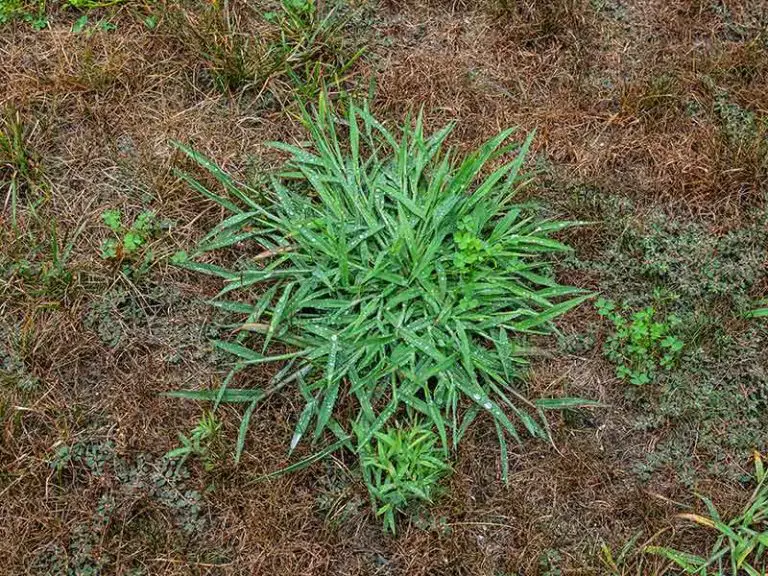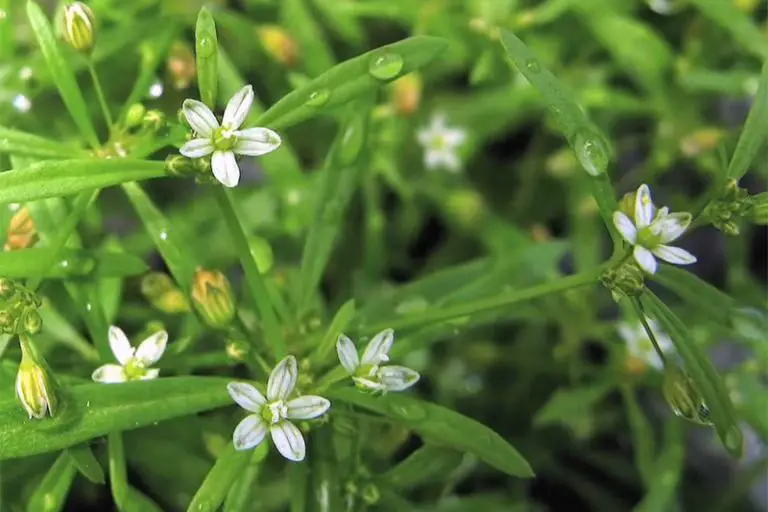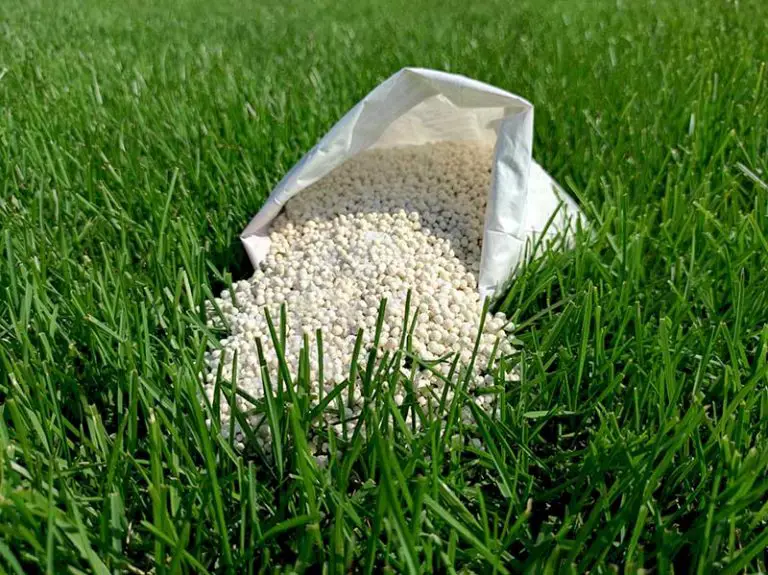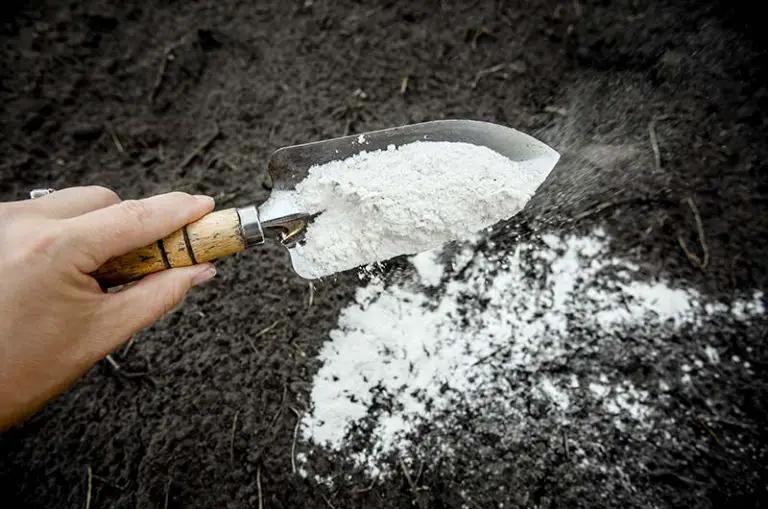Does Lawn Fertilizer Kill Weeds? Exploring the Effects on Unwanted Plants
One common question asked by homeowners and lawn enthusiasts is whether lawn fertilizer can effectively kill weeds.
The short answer is that lawn fertilizers are typically formulated to nourish and support the growth of grass, not to specifically eliminate weeds. However, the healthier and stronger your grass becomes, the better equipped it is to compete with weeds and prevent their growth.
It is important to understand the differences between lawn fertilizers and weed control products. Fertilizers contain essential nutrients required for the growth and development of grass, such as nitrogen, phosphorous, and potassium.
Weed control products, on the other hand, are designed to target specific weed species without harming the surrounding grass. In some cases, you can find weed and feed products that combine both fertilizer and selective weed killers in a single application – allowing you to both nourish your lawn and prevent weed growth at the same time.
When using a lawn fertilizer, it is essential to follow the recommended application rates and timing. Providing your lawn with the proper nutrients at the right times can create a dense turf that can outcompete weeds for sunlight, water, and nutrients. By adequately caring for your grass, you can create an environment where weeds struggle to survive, reducing their impact on your lawn.
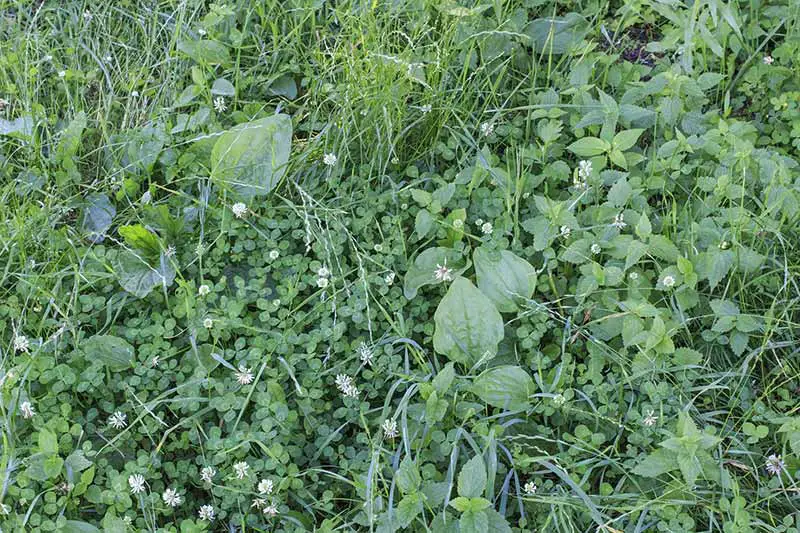
Lawn Fertilizer Basics
Fertilizing your lawn is essential to maintain its health, vibrancy, and overall appearance. In this section, we’ll explore some basics about lawn fertilizers, including the different types of fertilizers and their benefits for lawn growth.
Types of Fertilizers
There are two primary categories of fertilizers: organic and synthetic. Here’s a brief overview of the differences:
- Organic fertilizers: Derived from natural sources such as compost, manure, or bone meal, these fertilizers are biodegradable and environmentally friendly. They release nutrients slowly, providing steady nourishment to your lawn.
- Synthetic fertilizers: Manufactured through a chemical process, these fertilizers contain specific nutrient ratios that can be tailored to meet your lawn’s needs. They’re quick-acting, delivering immediate results, but can be harsh on your lawn if over-applied.
Benefits for Lawn Growth
Using the appropriate lawn fertilizer provides several benefits to your grass:
- Enhanced root development: Fertilizers promote stronger and deeper root systems, which can help your lawn withstand drought, disease, and stress.
- Improved nutrient uptake: A well-fed lawn absorbs and utilizes nutrients more efficiently, making it better equipped to fight off weeds, pests, and diseases.
- Lush, green appearance: Regular fertilization supports consistent, healthy growth, giving your lawn a vibrant and uniform color.
By understanding the basics of lawn fertilizers, you can make informed decisions based on your lawn’s specific needs and conditions, ultimately helping to keep it healthy and weed-free.
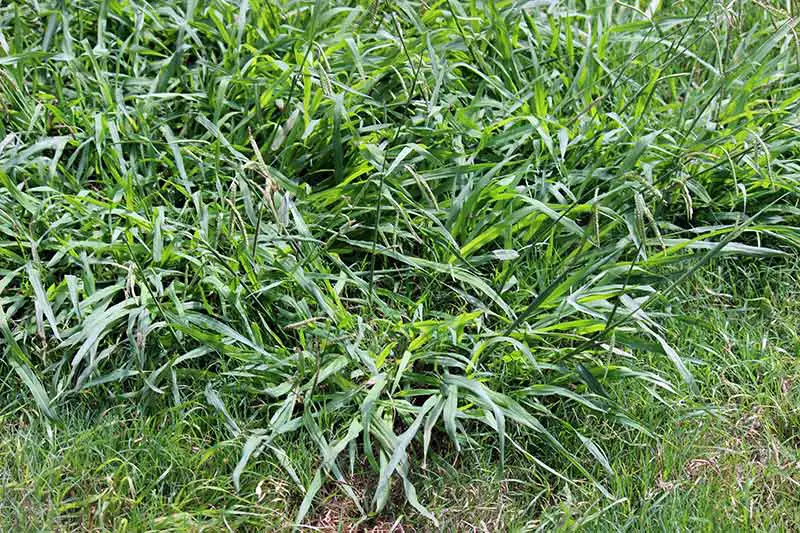
Will Lawn Fertilizer Make Weeds Grow?
Yes, lawn fertilizer can make weeds grow alongside your grass. Weeds respond to fertilizer in the same way as any other plant would; they will experience a growth spurt upon taking up the fertilizer’s nutrients.
By definition, weeds are simply plants that grow in unwanted places; this is the only aspect that sets them apart from the rest of your wanted growth like your grass. So, being plants, weeds also take up nutrients from the soil to grow. Adding a layer of fertilizer will therefore provide any existing weeds in your lawn with a boost of nutrients. Consequently, the weeds will grow and spread more rapidly
On top of this, most common lawn weeds are voracious growers with extensive root systems. With more roots to take up the fertilizer, weeds will steal the nutrients from your grass plants, before out-competing them. Even if your lawn only has a few weeds to begin with, an addition of fertilizer can trigger a full infestation.
Should You Kill Weeds Before Using Fertilizer?
You absolutely should kill weeds before using fertilizer. As we’ve just explained, fertilizer will only worsen any existing weed growth on your lawn. A few weeds can turn into a full infestation, while an existing infestation can completely outcompete the grass.
If you’re planning on fertilizing your lawn, but you’ve spotted some weed growth, you must deal with the weeds first. As an initial step, you need to identify the type of weeds growing on your lawn; correct identification is vital as different types of weeds require different methods of control.
For instance, a weed killer designed for broadleaf weeds like dandelion or spurge will be ineffective on grassy weeds such as crabgrass or nutsedge. This is an important consideration when choosing the right chemical weed killer for your lawn.
Weed Control Options
In this section, we will discuss various weed control options, including herbicides, organic methods, and cultural practices.
Herbicides
Herbicides are chemicals specifically designed to kill or inhibit weed growth. There are two main types:
- Pre-emergent herbicides: Applied before weeds emerge, they prevent seed germination and growth.
- Post-emergent herbicides: Applied after weeds have emerged, they target actively growing plants.
It’s essential to choose a herbicide that is appropriate for your lawn type and weed species. Some fertilizers contain herbicides, providing both weed control and fertilization in a single application.
Organic Methods
Organic weed control methods avoid the use of synthetic chemicals. Here are some options:
- Hand-pulling: Physically removing weeds, including the roots, to prevent regrowth.
- Corn gluten meal: A natural pre-emergent herbicide that prevents weed seed germination.
- Vinegar-based sprays: Non-selective post-emergent herbicides that kill weeds by disrupting cell structures.
While organic methods are environmentally friendly, they may require more time and effort compared to chemical solutions.
Cultural Practices
Proper lawn care practices can help prevent weed infestations. Consider the following:
- Mowing: Mowing at the correct height can help maintain turf density and discourage weed growth.
- Watering: Deep, infrequent watering promotes deep root growth, making lawns more competitive against weeds.
- Aeration: Regular aeration improves soil structure, allowing water and nutrients to penetrate more effectively.
By implementing these practices, you can create a healthy lawn environment that naturally suppresses weeds.
Fertilizer and Weed Interaction
In this section, we will discuss how lawn fertilizer interacts with weeds, both directly and indirectly.
Direct Effects
Fertilizer enhances plant growth, including weeds. Many weeds and grasses share similar nutritional needs, meaning fertilizers can provide the nutrients required for their growth. However, lawn fertilizers are often designed to target specific nutrients, like nitrogen, phosphorus, and potassium, prevalent in grasses. This means that while certain weeds may benefit from this nutrient input, other weeds may not see the same growth benefits.
Indirect Effects
Indirectly, a healthy and well-fertilized lawn helps to out-compete and suppress weeds by creating an environment that favors turfgrass growth. This can lead to a denser, healthier lawn that can act as a barrier to weeds. Additionally, well-nourished grass can recover faster from the stresses caused by mowing and foot traffic, allowing them to maintain their competitive advantage over weeds.
Does Lawn Fertilizer Kill Weeds?
While lawn fertilizer does not necessarily kill weeds outright, some specialized lawn fertilizers contain weed control ingredients. These are known as “weed and feed” formulations, which combine fertilizer and herbicides. They work to nourish the grass while simultaneously killing weeds in the lawn. However, it’s crucial to use them as directed to avoid harming the lawn or other desirable plants.
Does Lawn Fertilizer Kill Mushrooms?
Lawn fertilizer generally does not have a direct impact on mushrooms. Mushrooms feed on organic matter and decompose in the soil, and their presence is not necessarily an indication of a problem with your lawn. However, maintaining a healthy lawn by proper fertilization can help create an unfavorable environment for mushrooms, indirectly making it harder for them to thrive.
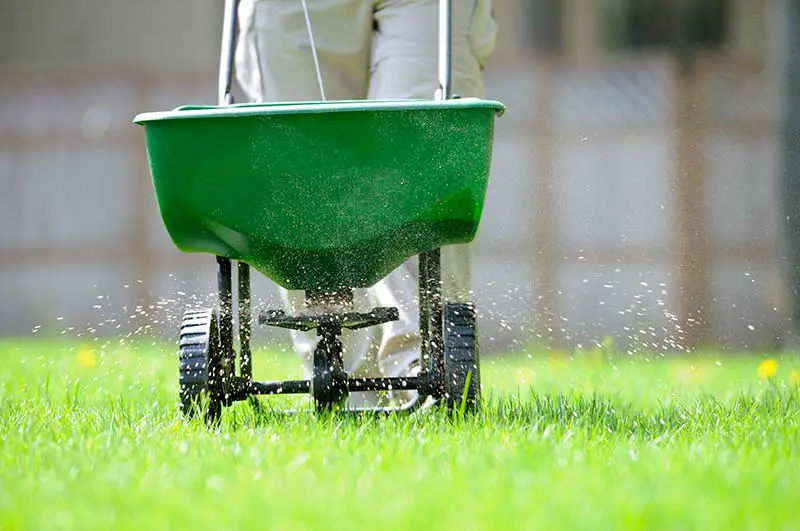
Can Lawn Fertilizer Damage a Lawn?
Lawn fertilizers are designed to provide essential nutrients to your grass, but if not used correctly, they can sometimes cause damage to a lawn. It is important to understand the factors that can lead to such damage and how to prevent it.
Over-fertilization is a common issue that can lead to a variety of problems, including:
- Burning the grass due to high concentrations of nutrients
- Excessive growth, making the lawn difficult to maintain
- Increased risk of lawn diseases and pests, as the rapid growth weakens the grass
To avoid these issues, it is important to follow the recommended application rates and timing provided on the fertilizer packaging. Using a slow-release fertilizer can also help reduce the risk of over-fertilization by providing nutrients more gradually over time.
Another concern is the impact of certain fertilizers on the environment. While most lawn fertilizers do not directly harm the environment, there are some key considerations:
- Phosphorus-based fertilizers can contribute to water pollution if they run off into nearby water sources
- Nitrogen-based fertilizers can release nitrous oxide, a potent greenhouse gas
To minimize these risks, it’s important to use fertilizers responsibly by following application guidelines and considering eco-friendly alternatives when possible.
Choosing the Right Product
When considering lawn fertilizers that target weeds, it’s essential to select the right product for your specific needs. There are numerous options available, and understanding their differences will help you make an informed decision. In this section, we will discuss weed and feed fertilizers, as well as the best timing and application methods.
Weed and Feed Fertilizers
Weed and feed fertilizers are a popular choice for homeowners looking to maintain a healthy lawn while combating weed growth. These products contain a combination of nutrients for lawn growth and herbicides for weed control. They are available in two main types:
- Granular: This form is spread over the lawn using a spreader, and it releases nutrients and herbicides gradually as it breaks down.
- Liquid: Usually applied with a hose or spray, liquid weed and feed products offer more immediate results but may require more frequent applications.
When selecting a weed and feed product, consider the specific weeds you’d like to target and choose a product with the appropriate herbicide components.
Timing and Application
To achieve optimal weed control and lawn fertilization, proper timing and application are crucial. Take note of the following guidelines:
| Timing | Application Tips |
| Early Spring | Apply pre-emergent herbicides to prevent weed germination, preferably when soil temperatures reach 55°F (12°C). |
| Late Spring/Early Summer | Use post-emergent herbicides to target actively growing weeds. Apply fertilizer to promote lawn growth and strength. |
| Fall | Apply a slow-release fertilizer for sustained nourishment during winter months. |
Follow the instructions on your chosen product, taking care to use the correct amounts and application methods. Over-application can cause damage to your lawn and may not provide the desired weed control.
Conclusion
In summary, lawn fertilizer can have varying effects on weeds depending on the type of fertilizer used and the application method. While some fertilizers may help in controlling weeds, others may unintentionally promote their growth.
It is essential to choose the right type of fertilizer for your specific lawn needs and to follow the recommended application rates and methods. By prioritizing your lawn’s overall health and implementing proper maintenance practices, you can create a more resilient landscape less hospitable to weed invasions.
Here are a few best practices to consider:
- Utilize pre-emergent and post-emergent herbicides for targeted weed control.
- Select a fertilizer rich in essential nutrients to promote healthy turf growth.
- Follow proper mowing, watering, and aeration techniques to maintain a healthy lawn.
By taking these precautions and understanding the effects of lawn fertilizers on weeds, you can effectively manage your lawn and create a more attractive, healthy, and weed-free landscape.


